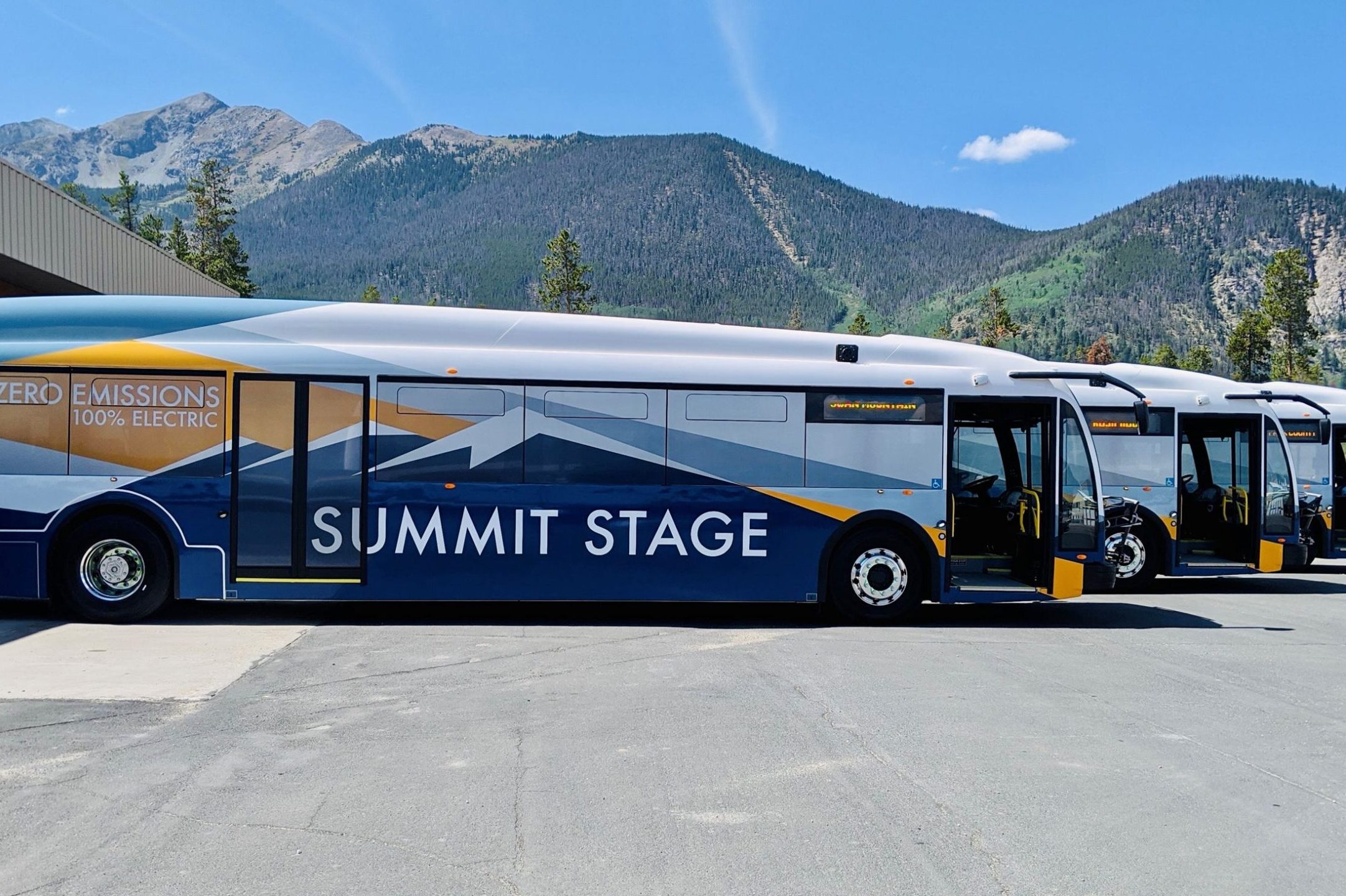
Summit County, the heart of Colorado’s ski country and a massively popular summer destination, wants to go big on public transit to help move the local workforce and fight traffic and pollution.
That effort got a big boost on Tuesday when the Federal Transit Administration announced a $34.7 million grant for a new bus maintenance and storage facility to help the county transition to electric buses for its free transit service called Summit Stage.
“We are absolutely thrilled,” said Summit County Commissioner Josh Blanchard.
But the county’s plan for beefed-up transit service aimed at the local workforce rests on its ability to overcome a problem facing transit agencies, school districts and other entities all over the state and country: a shortage of drivers.
And in that regard, things are moving in the wrong direction. The county has only about 60 percent of the drivers it needs right now and had to cut service last year, said Transit Director Chris Lubbers.
“We certainly, at this moment, don't have the ability to grow,” Lubbers said.
Still, Lubbers said the federal money will help by freeing up local funds that can go toward raises for drivers (the county will soon wrap up a compensation study that Lubbers expects will lead to a pay bump) and, hopefully, increase service.
“County leadership, the commission, the towns’ leadership, the resorts’ leadership, are absolutely 100 percent behind us and everything we’re doing … to not just restore, but grow transit as well,” Lubbers said.
The federal money will pay for most of a new 60,000-square-foot transit facility, which is big enough to hold an expanded fleet of buses with space for two workforce housing units. Lubbers estimated the cost to be between $42 million and $48 million.
The facility will also have chargers built into it. Summit Stage plans to go fully electric over the next 10 years. Lubbers said they currently have seven electric buses either in service or on order — and they’ve served admirably even on longer routes designed to bring workers in from other counties, he said.
“We've had those buses to Leadville and Fairplay without any problems, no issues whatsoever,” Lubbers said. “They perform better than diesel on the inclines.”
Blanchard said that electric buses and expanded transit service will also help the county reach its own climate emission reduction goals and protect the natural beauty that draws so many people. Transit shuttles to overloaded trailheads, for instance, help manage the realities of that growth, he said.
“I think overall it's just a smarter way of encouraging people to get out and enjoy the outdoors,” he said.
Other federal grant money for cleaner buses totaling about $16 million will flow to transit agencies in the Telluride area, the Roaring Fork Valley, Steamboat Springs, Vail, and Mesa County.









